As the number of social media users worldwide reaches 4.7 billion (with the average user spending 2 hours and 27 minutes a day on social media), businesses are clamoring to distinguish themselves in this space. This task is often left to social media managers, who oversee an organization’s social media strategy, produce content, analyze engagement data, provide customer service, and manage organic and paid campaigns.
Social media manager positions are highly competitive, and it can be difficult to stand out from the crowd. That’s why we’ve created this guide. Below, we’ll detail what social media managers do, and the skills you’ll need to become one.
What Skills Make for a Great Social Media Manager?
Social media managers need various skills, from creating content to devising a marketing strategy and interpreting social media analytics. Soft skills like customer service, time management, and creative thinking are equally indispensable.
Related Read: How To Do a Social Media Audit
Let’s break down what that looks like:
Technical Skills Essential for a Social Media Manager
You’ll need the following technical skills to stand out from the crowd as a social media manager:
1. Research

Social media managers have to understand their audience. They use web and social analytics to determine audience demographics and undertake market research to learn about their needs, wants, and motivations. Social media managers must know the brand’s values, vision, and mission by researching the company and interviewing stakeholders. They should periodically research their competitors to see what other brands are doing on social media, and stay on top of ever-changing social media trends.
2. Copywriting
Social media managers must write ad copy and organic content that sparks a conversation with their audience. The key is to write concise copy that elicits an emotional reaction and compels followers to action.

Copywriting tasks range from creating a social media profile description of the company to writing a tweet or headline for a Facebook ad. SMMs must also write captions for product visuals and videos.
3. Design
Creating visual content is an essential part of the job. Social media managers might have a hand in designing ad creatives, creating templates for images, videos, and ads, or working with a graphic designer. Having an eye for design helps when deciding which ad creatives to A/B test.

Social Media Platform Best Practices
Social media managers need to understand which audiences to target and how to craft the right messaging for each platform. Here’s what that looks like on each platform:
Unlike Instagram or TikTok, Facebook is not primarily a photo- or video-sharing platform, so it’s best to make posts actionable. Give people a blog post link to click on and ask followers to share their opinions by commenting on your posts. Use original, high-resolution images, GIFs, or video too.
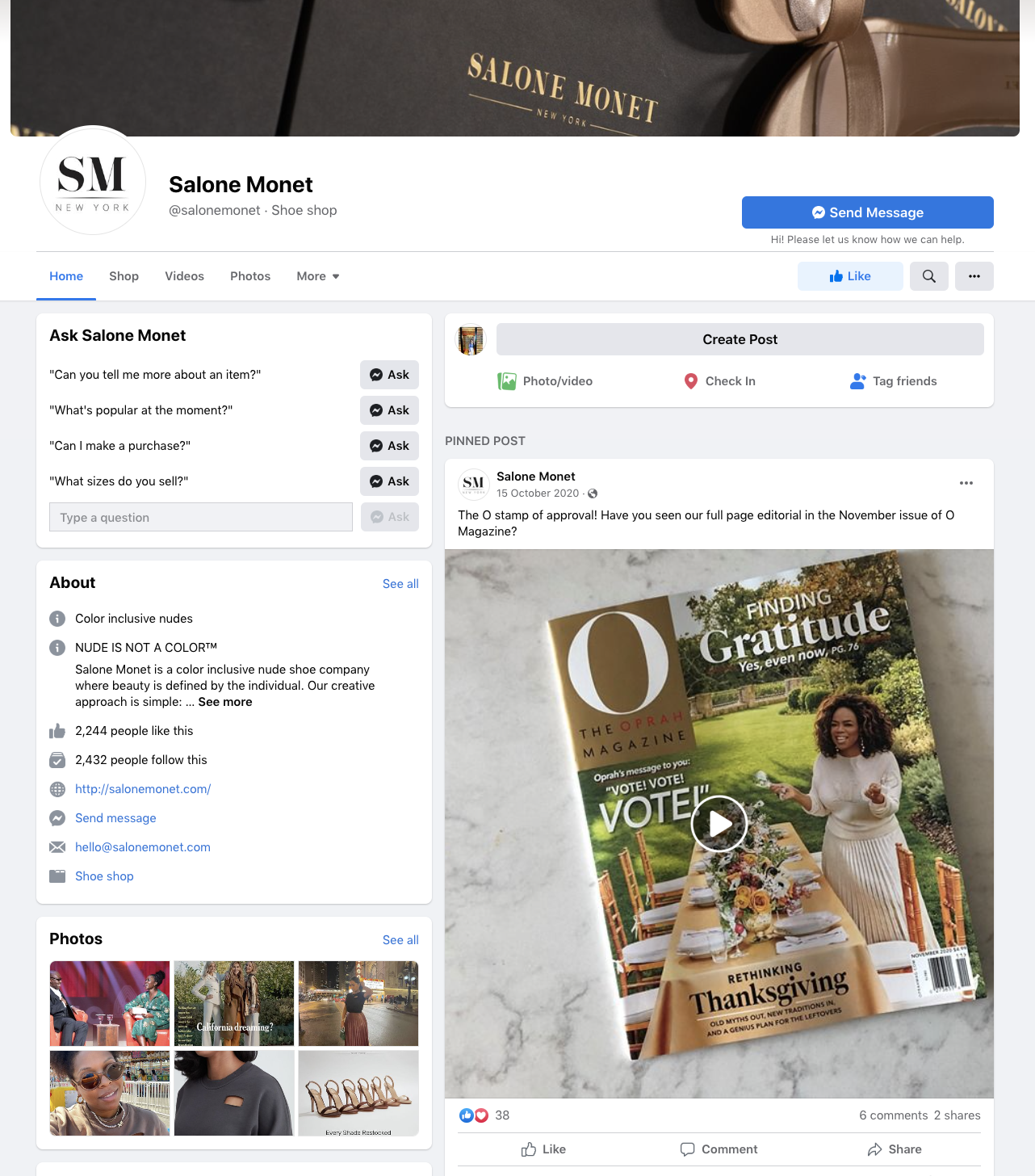
Generally speaking, live videos tend to perform better than pre-recorded videos because they rank higher on Facebook’s algorithm while recording is in progress. Finally, you should consider how or if you’ll use Facebook Messenger to provide customer service.
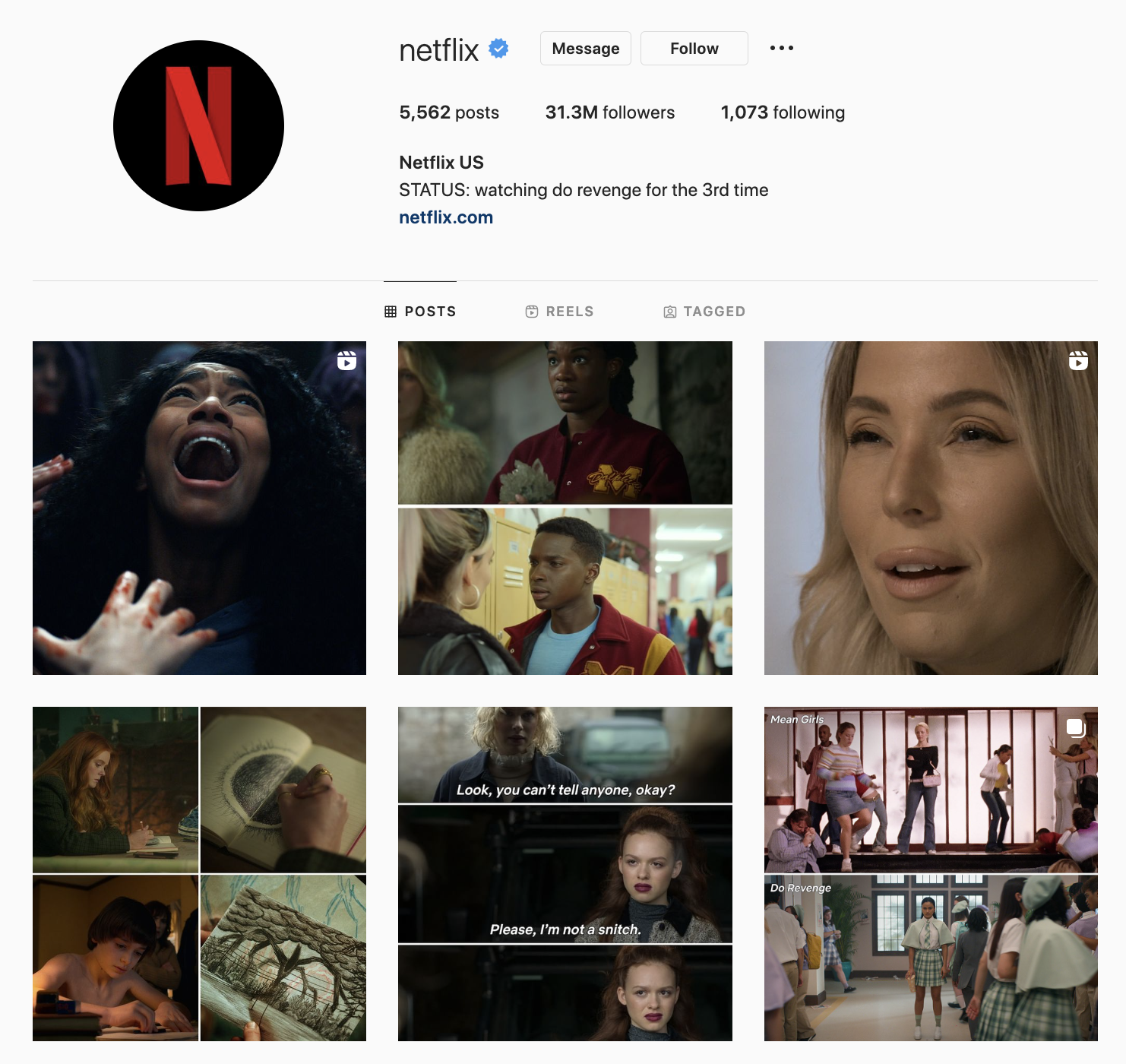
Instagram pushes a lot of visual content such as Stories, Live videos, GIFs, images, and pre-recorded videos. As with any platform, it’s important to set goals. Will you focus on social selling (promoting sales by featuring products in shoppable posts) or building brand awareness? Ask your community to share how they’re using your products by giving them a custom hashtag to add to their posts.
According to Instagram, 60% of users rely on the platform to research and discover products, making it a great platform for retailers and e-commerce brands to reach wider audiences.

Most Twitter users utilize the platform as a search engine, making it ideal for distributing content and boosting conversions. Twitter also has features unique to the platform. For example, keep tabs on your competitors with Twitter Lists, a curated timeline that shows tweets only from selected accounts.
LinkedIn is best for targeting senior-level decision-makers. In fact, 97% of B2B marketers use LinkedIn as a content distribution channel.

An attractive, informative business page is essential on LinkedIn. Highlight your team and any awards you’ve won. Remember to use industry-specific keywords so your company page will appear in LinkedIn searches. If you publish content, bear in mind that LinkedIn’s algorithm favors content published on the platform rather than promoting links offsite.

Pinterest is a visual discovery engine for finding ideas relating to fashion, home decor, recipes, and more. On Pinterest, you share content on Pinterest boards. Boards save your Pins and distribute your content for followers to explore. The best types of content for Pinterest include tutorials, infographics, how-tos, and links to educational content.
TikTok
TikTok is a video-sharing platform with 1 billion monthly active users. Videos can last up to 60 seconds. Brands use TikTok to build brand awareness and connect with younger audiences.

TIkTok offers a range of ad formats, from regular in-feed ads to brand takeovers (ads that appear immediately when users open the app), branded hashtag challenges, and branded effects (AR overlays that TikTokers can use in their videos, kind of like Snapchat filters).
Content Strategy

Social media managers must create a content strategy for each platform that aligns with the audience demographics and the types of content each platform supports.
Content strategy includes determining what to post, optimal posting time, posting frequency, and the type of messaging. Social media managers may be asked to create the brand’s social media voice (how the brand speaks to its audience). This requires an understanding of the audience, the business’s social media goals, and the constraints of each platform.
Community Building
The point of social media marketing is to build a community of people who share an interest in a particular topic. This means creating thought-provoking posts to incite discussions and encouraging followers to post their own content. User-generated content is immensely valuable to a business as it provides social proof (validation of the brand on the basis of its perceived popularity).
Familiarity With Social Media Scheduling Tools
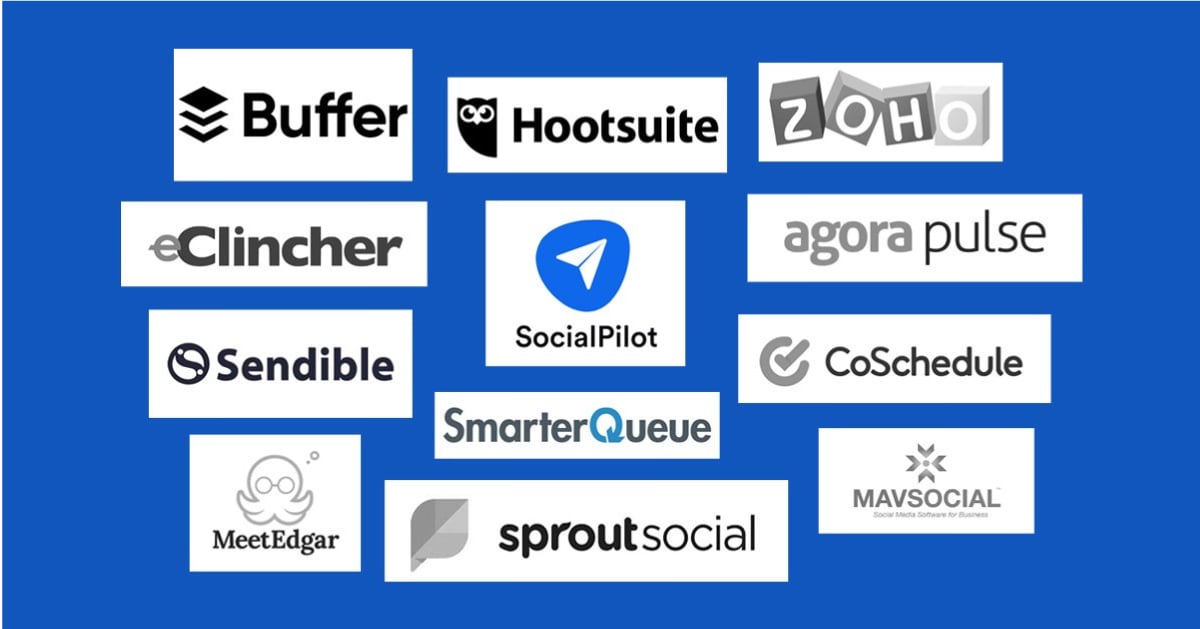
Social media scheduling tools enable businesses to plan content ahead of time and meet optimal posting times, even outside of regular business hours. These tools enable SMMs to review the social media strategy for the coming weeks and to approve posts created by others. Familiarity with scheduling tools such as Buffer, Hootsuite, and SproutSocial is essential.
Hashtag Research
Social media managers must identify trending hashtags on each platform and create custom branded hashtags. This requires an understanding of what the target audience is searching for and how they search for it (key search terms and phrases). Hashtag placement and using the right number of hashtags is also important consideration.
Facebook Business Manager
Facebook Business Manager is a hub for managing multiple Facebook pages, business assets, and ad accounts from one place. This dashboard provides a central location for keeping track of ads, post performance, and sharing (or revoking) access with other employees. You can also build custom audiences for different ad campaigns.
Analytics
Social media managers will be expected to produce reports on social media performance, set and track social media KPIs, and create data visualizations to demonstrate performance. Social media managers should also know how to use social media listening tools to track audience sentiment.
Soft Skills Essential for a Social Media Manager
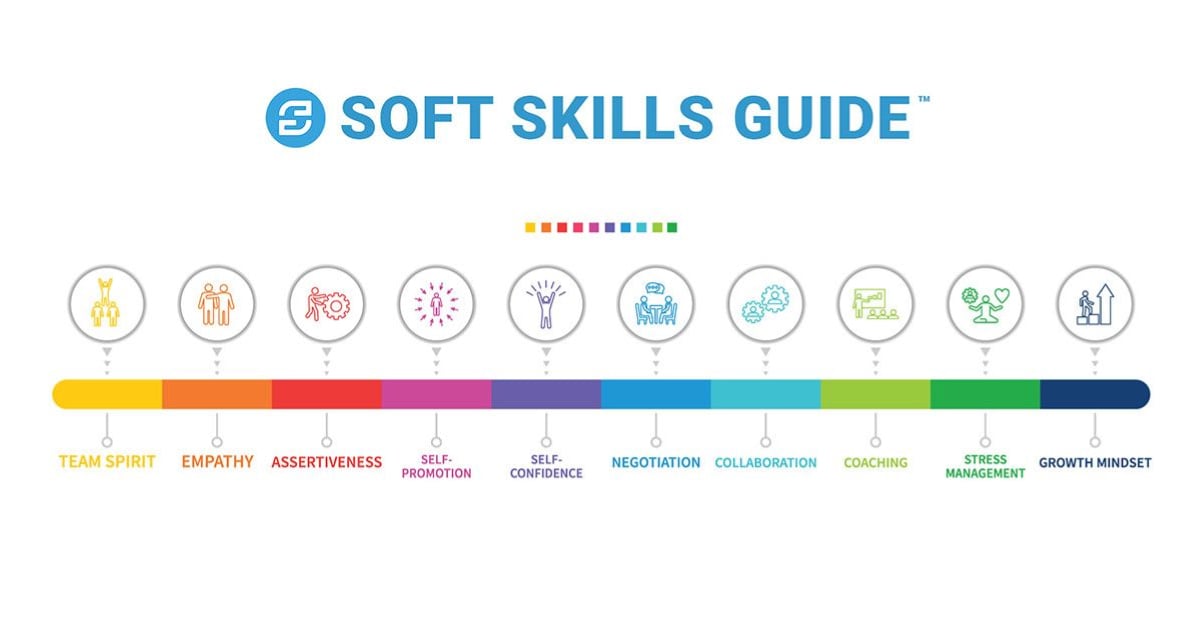
Social media managers need a range of soft skills to succeed in their role, including written and oral communication, the ability to plan ahead and execute within tight timelines, and managing multiple campaigns simultaneously. Let’s break that down:
Creative Thinking
Social media is a creative field that offers endless possibilities for experimentation. No two businesses will have the same social media strategy. The social media manager is responsible for thinking creatively, experimenting with different types of content, and coming up with new ways to trounce the competition.
Planning and Organization
While content creation offers more creative latitude, social media management requires a systematic approach. Social media managers must establish a content calendar, assign work to content creators, A/B test different versions of ad creatives, and ensure teams adhere to the content calendar.
Attention to Detail
Social media managers must follow social media trends in their industry. They must keep track of user engagement, ad performance, and whether their social media strategy is helping the business grow. Attention to detail is key to writing clean, error-free copy, ensuring creatives are up to snuff, and teasing out actionable insights from social media analytics.
Communication
The ability to write snappy, attention-grabbing copy is crucial. Social media managers must also craft and embody the brand’s persona and stick to a style guide. Social media managers may need to be comfortable appearing on camera and posting live videos on Facebook, Instagram, TikTok, and Snapchat.
People Skills
Many brands use social media to offer customer service or provide chat services via messaging apps like Facebook Messenger and Whatsapp. Social media managers resolve complaints, manage customer expectations, and communicate effectively–all while doing so on a public forum where interactions can be seen by current and potential customers. Some roles will require SMMs to manage relationships with influencers and creators, creative agencies, and other brands.
Flexibility and Adaptability
Social media managers must adapt to changing consumer trends, a shifting competitive landscape, and new features and updates on social media platforms. They must also be aware of the zeitgeist when planning social media content and be sensitive to how major political events or public health crises may influence the audience’s perception of certain topics.
Time Management and Multitasking
Social media managers are responsible for lots of moving parts. Managing time efficiently is of paramount importance. With trends constantly changing, the latest analytics, tools, and strategies must be constantly revisited. Social media managers must also manage multiple marketing channels at the same time. Social media listening tools, scheduling software, and marketing automation tools can help you use your time more efficiently.
Team Player
Social media managers work with multiple teams, not just a marketing department. They work with product managers and other organizational stakeholders to tell the brand’s story.
Being Proactive and Taking the Initiative
Social media managers should always be hunting for the next big thing. How can they improve the brand voice? What hashtags are underutilized? Can they use a chatbot to provide more efficient customer service? Social media managers must take action on insights from social media analytics instead of waiting to receive creative direction from a higher-up.
Persuasion
Social media managers also need persuasion skills to solve problems for customers and write effective ad copy to convince and convert.
What Skills Are Hiring Managers Looking For?
Hiring managers seek multiskilled candidates who can think creatively and analytically. When reading resumes, hiring managers look for candidates with experience in social media scheduling tools, reporting analytics, and campaign management. They may request writing samples or samples of campaigns you’ve spearheaded. Provide examples of how your work impacted engagement and conversions using metrics.
Here’s what you can expect a social media manager job description to look like:
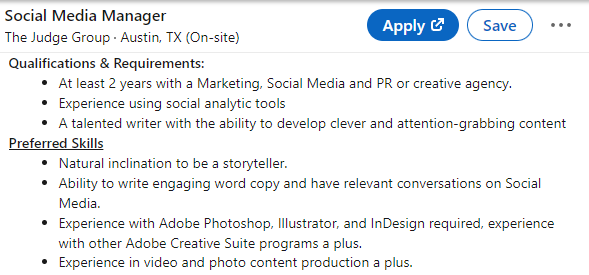
5 Ways To Acquire Social Media Management Skills
Social media management requires a range of skills, from data analytics to content writing. Consequently, there is no single set path to acquiring these skills. Aspiring SMMs can enroll in bootcamps, acquire certifications, and take online courses to gain the necessary skills.
Attend a Certified Course or Training Program
Programs that end in a certification provide you with a tangible credential to show potential employers. For example, Springboard’s Social Media Marketing Certificate prepares you for various roles in social media marketing. This course covers the full campaign spectrum, from finding your audience and defining social media goals to developing branding guidelines. You’ll create content for Facebook, Instagram, Twitter, and TikTok using graphic design and video tools. You’ll also be matched with a mentor who is a current social media marketing professional for the duration of your course.
As an alternative, you can take Massive Open Online Courses (MOOCs) or enroll in online courses provided by Hubspot Academy or Hootsuite Academy.
Keep Up With the Latest Trends

Unsurprisingly, one of the best ways to keep up with social media trends is to be active on your platforms! Follow social media gurus on Twitter—like Gary Vaynerchuk, Neil Patel, and Mari Smith, to name a few—and relevant hashtags like #socialmediamarketing or #digitalmarketing. Read content on social media news sites like Social Media Today, Our Social Times, and AdWeek for the latest commentary from industry analysts. Subscribe to YouTube channels or podcasts run by social media marketing thought leaders. Social media companies routinely publish blog posts or videos about new platform features that may affect your marketing strategy.
Join Online Communities
Attend virtual events or join online communities to meet like-minded professionals and experience firsthand what it takes to build a community online. Join industry groups on LinkedIn such as the International Association of Digital Marketing Professionals or Social Media Marketing and SEO. You can also participate in Slack communities for social media marketers such as Creative Tribes (follow the channels #socialmedia_marketing or #content_marketing) or Online Geniuses. The most followed channels on this community are #socialmediamarketing and #seo.
Take Up a Volunteer Project
Gain real-world experience by volunteering your services at a startup or nonprofit. As a beginner, consider working on one or two volunteer projects to build a portfolio. During interviews, you can discuss the tangible results you achieved for your clients through the campaigns you’ve managed. Choose an organization you feel passionate about, then reach out and offer to help.
Pursue an Internship
Internships also give you valuable hands-on experience. Polish your own social media accounts and present a cohesive personal brand before applying as most companies check their candidate’s social media profiles during the hiring process. Assemble a portfolio that shows experience with different facets of social media management, from writing ad copy to designing creatives, setting KPIs, and setting strategy.
FAQs About Social Media Management Skills
We’ve got the answers to your most frequently asked questions.
Can You Become a Social Media Manager Without a Degree?
A degree is not necessary to become a social media manager. However, you must be able to prove that you have the required technical and soft skills. Graduating from a bootcamp, obtaining a certification, and completing courses will show hiring managers that you possess the necessary background.
A portfolio of work that shows experience with all facets of social media management is also key.
Related Read: How To Get Into Social Media Marketing
What Essential Social Media Skills Should I Include on My Resume?
Tailor your resume to the requirements listed in the job that you’re applying for. Skills like interpreting and acting on social media analytics, experience with social media scheduling and social media listening tools, and content creation are likely to stand out.
Do You Need To Have an Online Presence To Become a Social Media Manager?
Absolutely. Social media managers must have a strong personal brand. This means having a sizable following on their preferred social media platforms, a habit of posting regularly, and a compelling portfolio website that tells the reader who they are and their approach to social media management.
Since you’re here…
Want to start your career in social media marketing? In our 8-week Social Media Marketing Certificate Course, you’ll build your CV with real-world projects, work 1-on-1 with an industry expert and complete an end-to-end social media campaign. Peep our student reviews to see what we can achieve together.

![15 Jobs You Can Get with a Marketing Degree [Career Guide]](https://www.springboard.com/blog/wp-content/uploads/2022/03/15-jobs-you-can-get-with-a-marketing-degree-career-guide.png)

